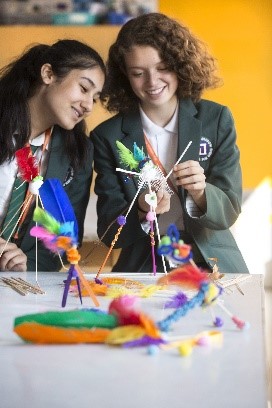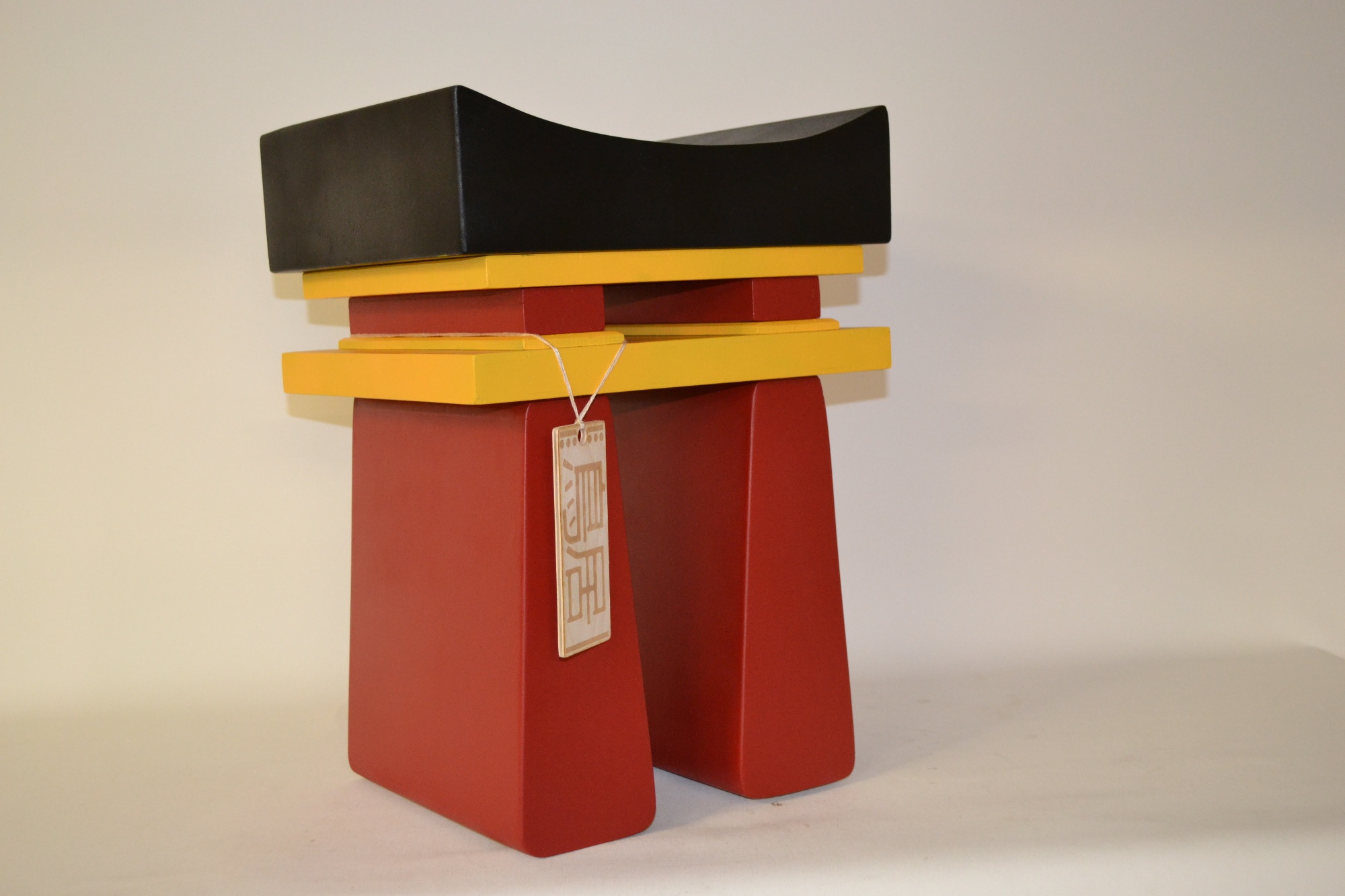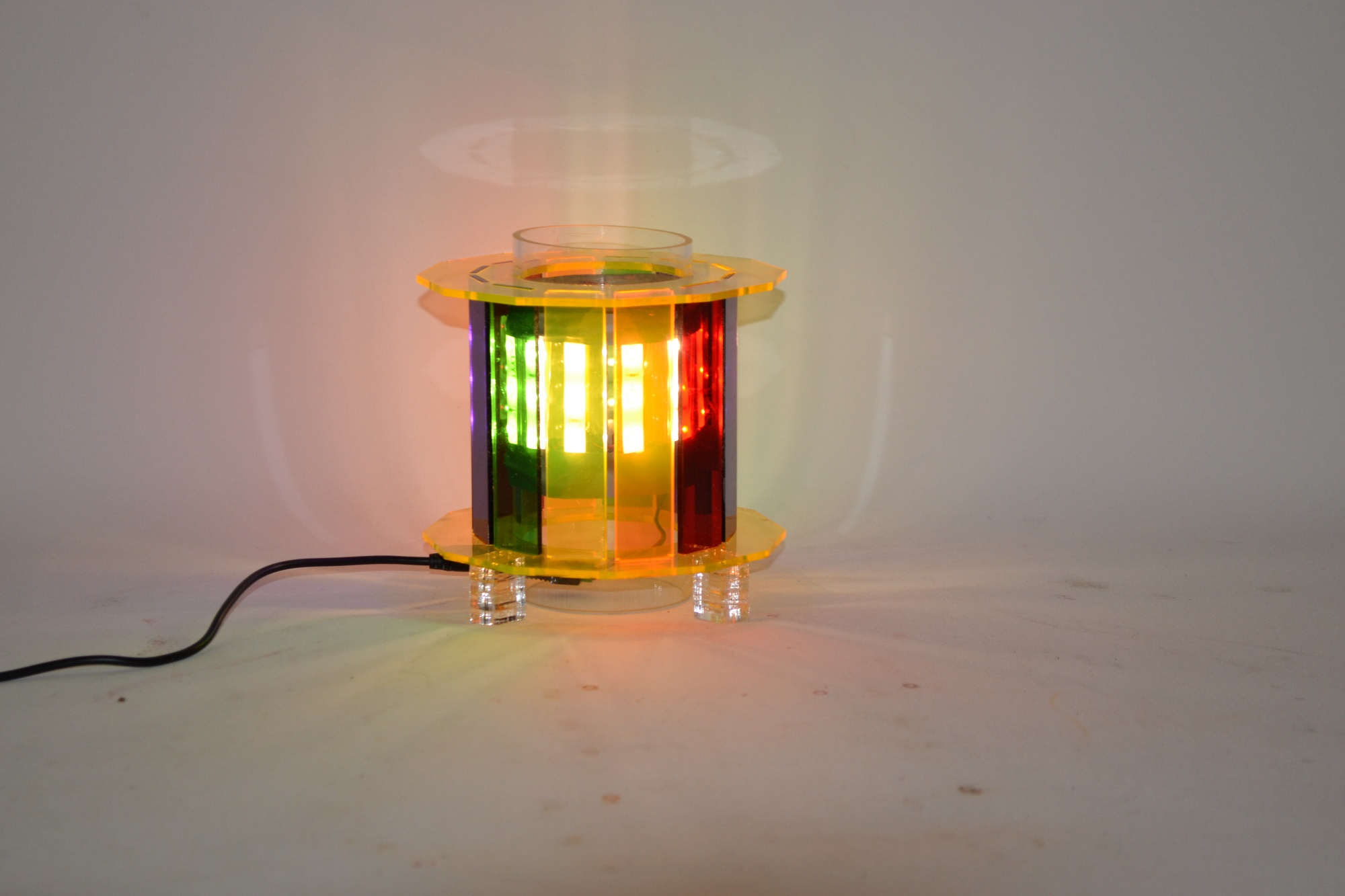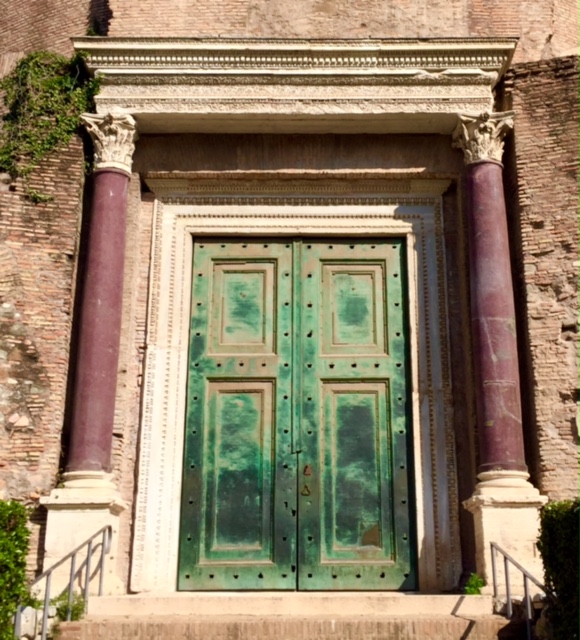Subject Information
Please click on the subjects listed below for more information.
The latest news from our Teaching Faculties can be found here
Art
Faculty News & Information
Click here for the latest news from the ADT Faculty
Exam Board and Syllabus
Edexcel GCSE Fine Art
This exam board has been chosen as it allows for a direct transition into A Level Fine Art Courses.
Year 7 Skills & Knowledge Map Identity
Year 7 Skills & Knowledge Map Insects
Year 8 Skills & Knowledge Map Grayson Perry
Year 8 Skills & Knowledge Map Natural Form
Year 9 Skills & Knowledge Map Still Life
Year 9 Skills & Knowledge Map Pop Art
Year 10 Long Term Plan
Year 11 Long Term Plan
Learning Journeys
Year 7 Colour and Painting
Year 7 Formal Elements and Mini Beasts
Year 7 Patterns in Nature
Year 8 Ceramics
Year 8 Pattern and Composition
Year 8 Portraiture
Year 9 Artists Who Play
Year 9 Perspective SOL
Year 9 Photo Montage Romare Bearden Black American artists
Year 9 Women in Art
Year 10 Surfaces
Year 11 Playful Portraits
Year 11 Work and Play
Home Learning
Homework is set once every two weeks for Key Stage 3 and aims primarily to develop skills in analysis and independent practice.
Supporting Progress
We understand that having access to materials and resources enables students to enjoy more independence in developing their ideas.
Key Stage 3: Lunchtime workshops are available
Key Stage 4: After school and lunchtime sessions are provided by the Art Department on a regular basis enabling students to access the facilities in their own time.
Beyond the Curriculum
We organise trips to the Tate Modern and Tate Britain for KS4 students to enhance their experience of art first hand.
We participate in the E17 Art Trail offering workshops and exhibiting student work.
We currently have an artist-in-residence working with us called Tana West. This enables students to experience the working processes of a practising artist first hand. Tana’s work will be exhibited within the school enabling all students first hand access to current art work.
Interim Head of Faculty: Ms S Healy (Maternity cover)
Click here to contact our staff
Staff can be contacted via info@wsfg.waltham.sch.uk
The Curriculum
At Key Stage 3 we explore observational drawing, sculpture, print-making, multi-media, conceptual art, craft and painting. Our curriculum draws upon the influence of local artists such as William Morris and Grayson Perry, as well as the influential work of Louise Bourgeois, Damien Hirst, Picasso and Georgia O’Keeffe. We keep our curriculum up-to-date by responding to key work that is on display in galleries in London and Walthamstow. The Art curriculum is focussed on developing our GREEN values, growth, resilience, energy, empathy and newness.
At Key Stage 4 students complete two key projects and their examination. The first project enables students to develop key skills in a range of practices including observational drawing, painting, colography, lino-printing and etching. Towards the end of the project students start to develop their own practice individually. The second project based on Identity allows for students to develop their individual practice and prepares them for the final 10 hour examination.
Students will learn to apply a creative approach to problem solving, consider and develop original ideas from initiation to realisation, analyse critically their own work and the work of others, express individual thoughts and choices confidently, take risks, experiment and learn from mistakes.
Assessment
Students will complete three projects in each year. These will be assessed throughout the year to support student progression.
Students will complete three ten hour exams, which will be assessed formally. Continuous
one-to-one teacher support will enable students to develop their projects independently.
This subject can lead to....
Art, Photography, Design, Art History, Architecture, Printing, Set Design, Costume Design, Product Design, Illustration, Cinematography, Lighting, Game Design, Advertising, Curating, Community Outreach, Project Managing, Publicity.
Computing Key Stage 3 / Computer Science GCSE
Faculty News & Information
Click here for the latest news from the ICT Faculty
Exam Board and Syllabus
OCR GCSE Computer Science J276
Year 7 Skills & Knowledge Map
Year 8 Skills & Knowledge Map
Year 9 Skills & Knowledge Map
Year 10 Long Term Plan
Year 11 Long Term Plan
Learning Journeys
Year 7 ICT
Year 8 ICT
Year 9 ICT
Year 10 BTEC Digital Technology
Year 10 GCSE Computer Scienc
Home Learning/Office 365
Key Stage 3: 30 minutes per week – Students set half termly homework projects by their teacher. Details of homework can be found on Office 365.
Key Stage 4: one hour per week - resources found on Office 365.
Supporting Progress
Intervention/support takes place one evening per week. The day will vary according to subject and teacher.
Beyond the Curriculum
Each form group has two Digital Leaders who are responsible for supporting and developing the schools use of technology.
Trips have been organised to the Science Museum, Thorpe Park, Legoland and the Gadget Show Exhibition.
Head of Faculty: Ms N Shafiq
Click here to contact our staff
Staff can be contacted via info@wsfg.waltham.sch.uk
The Curriculum
At Walthamstow School for Girls all students have the opportunity to learn about technology and learn with technology.
At KS3 students cover the computing national curriculum, including:
- Unit 1 Think like a computer scientist
- Unit 2 Introduction to Computer Programming
- Unit 3 From then until now – What is a computer?
- Unit 4 Are you safe online?
- Unit 5 Creating Websites
- Unit 6 Human Computer Interaction
- Unit 7 Real World Models
- Unit 8 Representing images
- Unit 9 Programming Robots
- Unit 10 Binary and Networks
- Unit 11 Introduction to Python
- Unit 12 KS4 Sampler Units:
- Unit 13 Searching and Sorting Algorithm
- Unit 14 Representing Sound
- Unit 15 Computers Everywhere
At Key Stage 4 students who opt for GCSE Computer Science study:
- Algorithms
- Iteration
- Boolean Logic
- Data Types and Data Structures
- Searching and Sorting Algorithms
- Input and Output
- Problem Solving
- Binary & Hexadecimal
- Binary Representations
- Programming Languages
- Computer Systems: Hardware
- Computer Systems: Software
- Networks
- Computer Security
- Ethical, legal, cultural and environmental concerns
Assessment
Key Stage 3: Students complete an End of Unit Test upon the completion of each unit.
Key Stage 4: Students complete an End of Topic Test upon the completion of each Topic.
Students will also take a number of mock exams and complete their non-exam assessment (NEA).
This subject can lead to....
A career in computer science:
- Application developer
- Business analyst
- Data analyst
- Database administrator
- Games developer
- Information systems manager
- IT consultant
- Multimedia programmer
- SEO specialist
- Systems analyst
- Systems developer
- UX analyst
- Web designer
- Web developer
Design & Technology
Faculty News & Information
Click here for the latest news from the ADT Faculty
Exam Board and Syllabus
AQA Design & Technology 8552
Year 7 Skills & Knowledge Map
Year 8 Skills & Knowledge Map
Year 9 Skills & Knowledge Map
Year 10 Long Term Plan
Year 11 Long Term Plan
Learning Journeys
Year 7 Ball Bearing Game
Year 7 Desk Tidy
Year 7 Wooden Puzzle
Year 8 CAD CAM study aid
Year 8 Designer inspired Tea light
Year 8 Textiles, Emoji Project
Year 9 CAD CAM Mirror
Year 9 Decorative lightbox
Year 9 Metal Casting
Year 10 Common specialist technical principles
Year 10 Energy, materials, systems and devices
Year 10 Materials
Year 10 New and Emerging Technologies
Year 10 Timbers
Home Learning
Key Stage 3: Home Learning tasks may be research assignments to find out more about a particular product or theme; drawing and design tasks, finding out more about a theoretical element that is being looked at in class for example energy use or sustainability.
Key Stage 4: students will be set exam style questions as well as needing to work on their design folders.
Supporting Progress
Staff are available after school for support and students are always welcome to come and speak to staff outside of lesson time. During GSCE examinations staff run a range of supporting workshops to enable students to keep up with their work and get extra advice.
Learning resource materials are available on Office 365/Teams for all students to access at school or at home.
Beyond the Curriculum
Where possible educational visits and events are organised both in school and out. Each year a group of students is taken to the V&A museum for their ‘Creative Quarter’ event. We have visited the Design Museum for workshops and exhibitions. In school we have been able to invite students to take part in regular workshops run by a variety of visiting agencies.
Interim Head of Faculty: Ms S Healy (Maternity cover)
Click here to contact our staff
Staff can be contacted via info@wsfg.waltham.sch.uk
The Curriculum
At Key Stage 3, students follow a course that enables them to work with a wide variety of materials and topics. In order to make products they will work in wood, metal, plastics, textiles and electronics as well as paper and card for graphic products. D&T themes that will be covered include: control technology with elements of coding; finding out about environmental considerations such as energy use and sustainability; famous designers and design movements. They will use a variety of hand tools, machine tools and computer aided design and manufacturing techniques to make high quality products.
At Key Stage 4 students follow the AQA specification for Design & Technology. This enables them to study different material areas before focussing on two for a Design and Make project in Y11. As part of this course students will need to develop an understanding of energy, mechanisms, structures and environmental considerations.
Assessment
At Key Stage 3 students are assessed on the assignments they are working on. These may be Design & Make tasks; Design only tasks; practical work or theory assignments. Where appropriate, tests are used.
At Key Stage 4 students use exam questions and project based assignments. Mock exams are used in the summer term of Y10 and the autumn term of Y11.

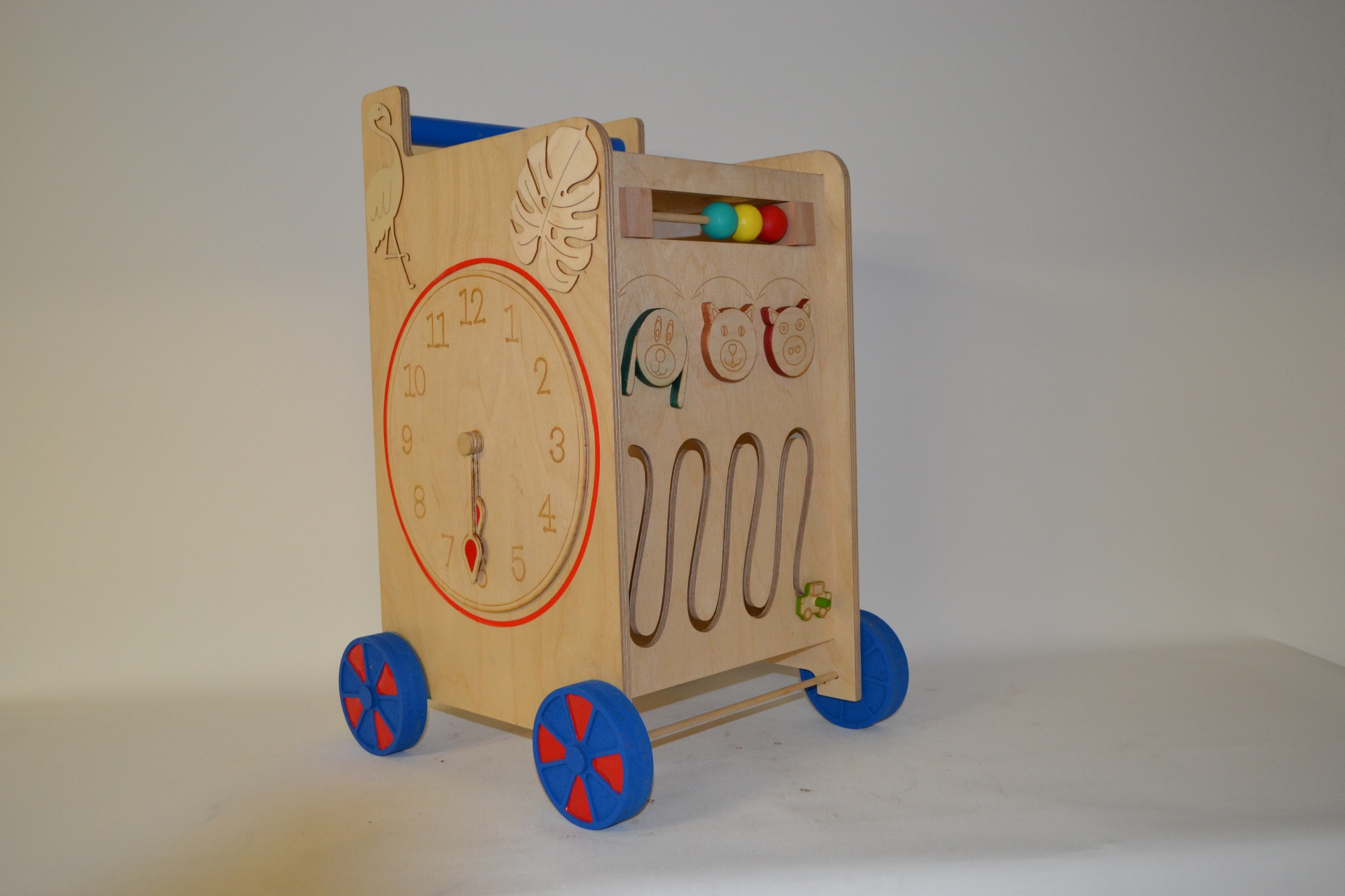 This subject can lead to....
This subject can lead to....
A levels or BTEC qualifications in a range of creative courses. Degree level courses in a wide range of creative and technical subjects such as Product Design, Fashion Design and Engineering.
Above all D&T encourages a creative and independent way of thinking, problem solving and using practical outcomes to create useful products.
Drama
Faculty News & Information
Click here for the latest news from the Performing Arts Faculty
Exam Board and Syllabus
WJEC Drama GCSE
Year 7 Skills & Knowledge Map
Year 8 Skills & Knowledge Map
Year 9 Skills & Knowledge Map
Year 10 Long Term Plan
Year 11 Long Term Plan
Learning Journeys
Year 7 Greek Theatre
Year 7 Lila
Year 7 The Wardrobe
Year 8 Forum Theatre
Year 8 Noughts & Crosses
Year 8 Shakespeare & the Supernatural
Year 9 DNA
Year 9 Women Who Changed the World
Year 10 Component 1
Year 10 Interpreting Theatre
Year 11 Component 2
Year 11 Interpreting Theatre
Home Learning
Key Stage 4 homework is set once a week.
Key Stage 3 homework is set three to four times per term.
Resources are kept in the Performing Arts section of the online shared student area.
Supporting Progress
Students are supported at GCSE with coursework tutorials and extra rehearsals outside lesson time, by arrangement with the class teacher.
Beyond the Curriculum
There are many opportunities provided for enrichment. At present we run the following:
Year 7: Drama Club
Year 8: Barbican Box Project
Year 9: Old Vic Schools Club
Years 10 and 11: Almeida Theatre Club
Biennially, we collaborate as a faculty to produce a whole-school musical production. In between, we run smaller performance projects such as participating in the Shakespeare Schools Festival.
Head of Faculty: Mr J Hoyle
Click here to contact our staff
Staff can be contacted via info@wsfg.waltham.sch.uk
The Curriculum
At Key Stage 3, students learn about the history of theatre through the practical exploration of Greek drama, Commedia dell’arte, Shakespeare and Melodrama. Students work with a range of texts and in Year 9, study a full-length play. We also focus on developing improvisation and devising skills, using them to explore topics across the curriculum, and we investigate the work of practitioners such as Boal and Stanislavski.
At Key Stage 4, Unit 1 Devising Theatre is the focus for Year 10. We begin by exploring the work and ideas of Brecht and the genre of physical theatre. Students then move into groups to devise an original piece of drama in the style of either Brecht or physical theatre. Students are marked on their performance and on a coursework portfolio and written evaluation. In Year 11, the focus is on text work. Unit 2 involves performing a scene from a published play. To prepare for the Unit 3 written exam, students study a set text from the perspectives of actor, designer and director and respond to a live theatre experience they have had during the course.
Assessment
Key Stage 3 assessments are completed termly. Students’ practical work and their written log books are taken into consideration when measuring progress.
At GCSE, Unit 1 is completed in the summer term of Year 10. Units 2 and 3 examination dates are set by WJEC and are completed in the spring and/or summer term of Year 11.
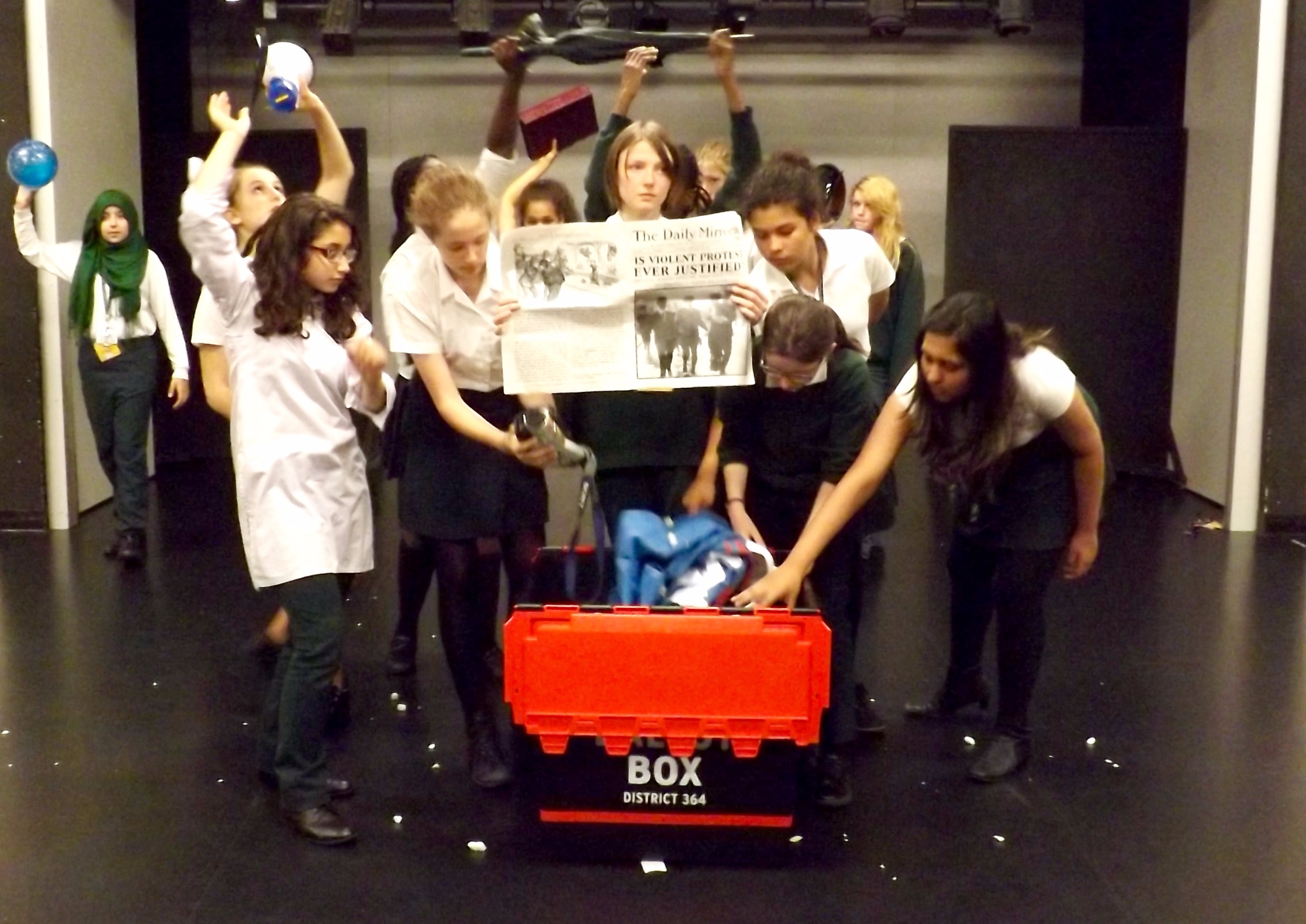
This subject can lead to....
Students who gain a GCSE in Drama can go on to study the subject as an A Level or BTEC, and beyond that, at degree level.
Drama is highly valued by universities and employers as a subject in which creativity, self-discipline, collaboration and confidence are developed.
English
Faculty News & Information
Click here for the latest news from the English Faculty
Exam Board and Syllabus
WJEC Eduqas GCSE English Literature & AQA GCSE English Language
Year 7 Long Term Plan
Year 8 Long Term Plan
Year 9 Long Term Plan
Year 10 Long Term Plan
Year 11 Long Term Plan
Learning Journeys
Year 7 Poetry Learning Journey (Teacher 1)
Year 7 Poetry Learning Journey (Teacher 2)
Year 7 A Christmas Carol
Year 7 Gothic Writing
Year 7 Shakespeare - Writing a Play
Year 7 Shakespeare
Year 7 Non-Fiction Media
Year 7 Transactional Writing
Year 7 Windrush Child
Year 7 Let's Think in English
Year 8 Animal Farm
Year 8 World War 1 Poetry
Year 8 Victorian Literature
Year 8 Creative Writing Genre Study
Year 8 Transactional Writing - Global Voices
Year 8 Tempest
Year 9 A View from the Bridge
Year 9 Non-Fiction Feminism
Year 9 Macbeth
Year 9 Poetry
Year 9 Up for Debate
Year 9 Of Mice and Men
Year 10 An Inspector Calls
Year 10 Anthology Poetry
Year 10 Jane Eyre Part 1
Year 10 Jane Eyre Part 2
Year 10 Romantic Poetry
Year 10 EOY Exam Revision
Year 11 Romeo and Juliet
Year 11 Language Paper 2 and Dec. Mocks
Year 11 Literature Revision Spring Term
Year 11 Language Bootcamp
Year 11 Literature Revision Summer Term 1 (Final Revision Weeks)
Home Learning
Key Stage 3: homework is set once per week. Students should spend a minimum of 30 minutes completing work. In addition, students should complete at least 20 minutes per day independent study or reading for pleasure.
Key Stage 4: homework is set at least once per week. Students should spend a minimum of 60 minutes completing work. In addition, students should complete an additional 60 minutes of independent study or reading for pleasure. Students can ask teachers to recommend reading or set additional tasks.
Supporting Progress
The English Faculty work closely with the Language & Learning Development and SENCO to ensure that students with specific needs receive any required support.
Revision booklets have been developed to provide support for each student on all topics covered at GCSE.
Exam boot-camp and “walking talking mocks” are held prior to Year 11 examinations.
Beyond the Curriculum
- Creative writing competitions
- Debate Club
- Global Alliance Book Club
Head of Faculty: Ms R Schaber
Click here to contact our staff
Staff can be contacted via info@wsfg.waltham.sch.uk
The Curriculum
Key Stage Three
Year 7 is taught in mixed ability form classes. Year 8 and Year 9 are taught in mixed ability form groups, with a maximum of 30 students. In Year 9 the cohort is taught in mixed ability groups of 30 students, but from a mixture of tutor groups.
Across Key Stage 3, students study Language and Literature to underpin the skills needed at Key Stage 4:
- Narrative Writing
- Pre 19th Century Literature
- 20th Century novel
- 20th Century Drama
- Shakespeare
- Poetry from Other Cultures
- Non-Fiction - Comprehension and Writing
Key Stage Four
Students study WJEC Eduqas GCSE English Literature and AQA English Language
Students in Years 10 and 11 continue to be taught in mixed-ability groups, although classes are reduced to approximately 24 students.
Throughout Year 10 and 11, students do timed practices and checkpoint assessments to enable the faculty to monitor progress and further support our students.
Assessment
KEY STAGE THREE
End of Unit assessment each half-term.
End of Year examinations (Year 9 only)(May/June).
KEY STAGE FOUR
Checkpoint assessments each half-term.
End of Year 10 examinations (June).
Year 11 mock examinations (November)
Year 11 timed practices for each component, will be completed regularly throughout the year.

This subject can lead to....
Jobs directly related to English include:
- Digital copywriter.
- Editor.
- English as a foreign language teacher.
- Lawyer
- Lexicographer.
- Magazine journalist.
- Newspaper journalist.
- Paralegal.
- Publishing copy-editor/proof-reader.
- Research analyst.
- Social media manager.
- Translator.
- Writer.
However, studying English also enables you to think analytically, reflectively and evaluatively, leaving your options truly open.
Food Preparation & Nutrition
Faculty News & Information
Click here for the latest news from the ADT Faculty
Exam Board and Syllabus
Eduqas GCSE Food Preparation and Nutrition
Year 7 Skills & Knowledge Map
Year 8 Skills & Knowledge Map
Year 9 Skills & Knowledge Map
Year 10 Long Term Plan
Year 11 Long Term Plan
Learning Journeys
Year 7 Nutrition and Diet
Year 8 Nutrition and Diet Continued
Year 9 Nutrition and Diet Continued
Home Learning
Home learning is planning and preparation for lessons, however students are encouraged to cook (and clean up!) at home – and especially to practice the skills learnt in curriculum time. Recipes can be found on Office 365/Teams.
Supporting Progress
Support sessions for KS4 students are arranged at lunchtimes and after school, leading up to the deadline for non-examined content submission as well as written exams.
All students have many opportunities to practice and develop their skills in the time leading up to final assessments.
Beyond the Curriculum
Educational visits have been organised to allow students to experience a range of culinary opportunities from afternoon tea to fine dining.
Interim Head of Faculty: Ms S Healy (Maternity cover)
Click here to contact our staff
Staff can be contacted via info@wsfg.waltham.sch.uk
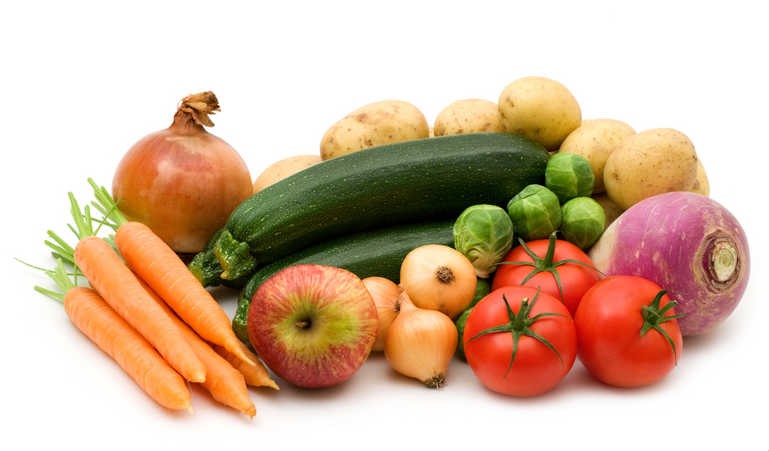
The Curriculum
At Key Stage 3, students develop the foundations of skills and knowledge required for independent and safe working. Year 7, 8 & 9 students experience a variety of practical lessons, demonstrations and some theory.
Together we explore a range of healthy ingredients, equipment and cooking methods. Building on their skills and knowledge, students will be ready to create a variety of healthy balanced family meals. Influenced by seasonal and sustainable ingredients, and beginning in our allotment here at Walthamstow School for Girls, our curriculum takes us on a round-the-world tour with a variety of topics from different countries.
GCSE Food Preparation and Nutrition offers a unique opportunity for candidates to develop the knowledge, understanding and skills required to cook and apply the principles of food science, nutrition and healthy eating.
Following this syllabus will encourage learners to cook and enable them to make informed decisions about food and nutrition in order to be able to feed themselves and others affordably and nutritiously now and later in life.
It offers a balance between practical and theory work and is a suitable qualification for those who wish to progress to Further Education, but also offers valuable preparation for those entering the world of work.
Assessment
At Key Stage 3, students are assessed on the assignments they are working on. Pupils will be assessed on the theory of food, nutrition and preparation as well as practical exercises.
At Key Stage 4, students use practice examination questions and project based assignments. Mock examinations are used in the summer term of Year 10 and the autumn term of Year 11.
This subject can lead to....
A levels or BTEC qualifications in a range of creative courses.
There are hundreds of possibilities in the catering field. Perhaps you would like to run your own bakery, café or restaurant, forge a career in business with one of the UK’s supermarket giants or develop recipes for books or magazines.
French
Faculty News & Information
Click here for the latest news from the Languages Faculty
Exam Board and Syllabus
Edexcel GCSE French
Learning Journeys
Year 7 Term 1a
Year 7 Term 1b
Year 7 Term 2a
Year 8 Term 1a
Year 8 Term 1b
Year 8 Term 2a
Year 8 Term 1a Dual 1st Year
Year 8 Term 1b Dual 1st Year
Year 8 Term 2a Dual 1st Year
Year 8 Term 1a Dual 2nd Year
Year 8 Term 1b Dual 2nd Year
Year 8 Term 2a Dual 2nd Year
Year 9 Term 1a
Year 9 Term 1b
Year 9 Term 2a
Year 9 Term 1a Dual 2nd Year
Year 9 Term 1b Dual 2nd Year
Year 9 Term 2a Dual 2nd Year
Year 9 Term 1a Dual 3rd Year
Year 9 Term 1b Dual 3rd Year
Year 9 Term 2a Dual 3rd Year
Year 10 Term 1a
Year 10 Term 1b
Year 10 Term 2a
Year 11 Term 1a
Year 11 Term 1b
Year 11 Term 2a
Home Learning
KS3
Half termly vocabulary learning tasks set on Quizlet. Students have individual school logins.
KS4
Half termly vocabulary learning tasks set on Quizlet.
Students have individual school logins. Half termly speaking booklet preparation linked to the thematic context being studied.
Regular GCSE style practice tasks set by the class teacher.
Supporting Progress
One to one and group speaking sessions with our French Language Assistants.
Extra support for Key Stage 3 students is provided one lunch time per week for KS3 French students with our French Language Assistant
Extra support for Key Stage 3 students is provided one lunch time per week for KS4 French students with our French Language Assistant
GCSE intervention during Registration to support students before exams with a French teacher or our French Language Assistant
Beyond the Curriculum
French clubs at lunch time with our French Language Assistant to learn more about the culture in the French speaking world.
Day trips to French Crêperies
French cinema screenings
University trips
Theatre trips
Museum trips
Residential trips to France
Head of Faculty: Ms E Watson
Head of French: Miss A Flaender
Click here to contact our staff
Staff can be contacted via info@wsfg.waltham.sch.uk
Faculty information
Our vision: In the Languages Faculty we are courageous, confident, and excellent communicators. We aim to instill curiosity, open-mindedness and compassion for the world to be global citizens. As linguists we take responsibility for our learning journey, and we aspire to a lifelong love of languages and culture.
All Students in Year 7 study either French or Spanish. Students with strong reading skills are also introduced to the ancient world and carry out an independent ancient world research project. In years 8 and 9 students build on this foundation, learning about the ancient world in more depth as well as meeting the basics of the Latin language. Able linguists are given the opportunity to study both French and Spanish from Year 8. All three languages are offered at GCSE, and a very high percentage of our students opt to continue with their language in KS4. Group sizes are usually between 20 and 25.
We are fortunate to have French and Spanish language assistants each year and our students benefit enormously from working with them. Many other extra-curricular activities are organised such as lunchtime language clubs and lunchtime support.
Assessment
At Key Stage 3, students are assessed in each of the four key skills; Listening, Speaking, Reading and Writing in both Formative and Summative Assessments.
At Key Stage 4, students are assessed in each of the four key skills; Listening, Speaking, Reading and Writing in both Formative and Summative Assessments. In both Year 10 and Year 11 students will complete a full mock paper assessing all four skills to prepare them for the final exam at the end of Year 11.

Advantages of studying French
Here are the top 3:
1. Communication: Opens doors to connect with millions of speakers worldwide, enhancing cultural understanding and global communication skills.
2. Cognitive Benefits: Improves problem solving, multitasking and memory skills contributing to overall academic performance.
3. Career Opportunities: Enhances employability in various sectors such as business, tourism, international relations and much more. A languages GCSE is a great choice, regardless of what your plans are for the future. Not only will you have the ability to communicate in a different language, but employers, colleges and universities will look favorably on your application.
Geography
Curriculum Overview
Geography is the study of places and the relationships between people and their environments. Geographers explore both the physical properties of Earth’s surface and the human societies spread across it.
Many of the issues which dominate our media today such as population growth, resource depletion, pollution, climate change and migration are central topics covered in geography. Through studying this subject, students are provided with an opportunity to deepen their understanding about the World around them and how people interact with it and each other.
As with the other Humanities subjects, geography will enable pupils to learn how to think creatively and critically, to reason, and to ask questions. The Humanities department at WSFG seeks to provide a high quality education for all students, thereby promoting inclusion and equal opportunity.
Home Learning
Homework relevant to the topic being taught will be set every week.
Where appropriate, resources will be made available through the relevant student Teams on Microsoft Office.
Assessment
Students will be regularly assessed throughout KS3 and KS4, with targeted feedback provided by teachers on how students can improve their levels of attainment and make greater levels of progress.
Supporting Progress
The progress of students will be closely monitored through assessments and book checks. Where pupils need additional support staff will endeavour to provide this through adaptive teaching practices in lessons.
Where applicable, interventions may be set up to involve individual, or groups of students through lunch or after school study sessions. This approach is most likely to be taken in the build up to GCSE exams to support students in meeting their target grades.
Beyond the Curriculum
Children learn by experience, with fieldwork and educational visits forming an integral part of the geography curriculum. Our students have benefited from a variety of trips in recent years including the Natural History Museum, London Zoo and Walton on the Naze. We are continually looking for new opportunities to support our students with their learning through such visits.
Faculty News & Information
Click here for the latest news from the Humanities Faculty
Geography curriculum at KS3
|
Year group |
Number of hours per fortnight |
Topics covered |
|
7 |
2 |
1. What is geography all about? |
|
8 |
3 |
1. What are the factors which affect population? |
|
9 |
2 |
1. How do glaciers shape the land? |
For a detailed overview of the Learning Journeys for each of these units and how they are assessed, click on the links below:
Learning Journeys KS3
Geography curriculum at KS4
Exam Board and Syllabus
At WSFG we study the AQA GCSE Geography
The topics studied are as follows:
Paper 1 - Physical geography including: - the challenge of natural hazards, physical landscapes in the UK, the living world and geographical skills.
Paper 2 - Human geography including: - urban issues and challenges, the changing economic world, the challenge of resource management and geographical skills.
Paper 3 - Geographical skills including: - issue evaluation, fieldwork and geographical skills.
A comprehensive outline of what these topics involve can be found in the AQA specification which can be accessed here.
For an overview of when we study these units you can review the Learning Journeys for years 10 and 11 below:
Learning Journeys KS4
Head of Faculty: Mr R Sterlini
Click here to contact our staff
Staff can be contacted via info@wsfg.waltham.sch.uk

This subject can lead to....
Geography is great for any kind of career that involves the environment, planning, or collecting and interpreting data. Popular careers for people with geography qualifications include: town or transport planning, surveying, conservation, sustainability, waste and water management, environmental planning, tourism, and weather forecasting.
The army, police, government, research organisations, law and business world also love the practical research skills that geographers develop.
Because geographers learn about human and population development, geography can be useful for jobs in charity and international relations too.
History
Curriculum Overview
The History curriculum at WSFG aims to give students an experience which encourages the development of skills, investigation and enquiry whilst securing a diverse and inclusive understanding of History as well as developing enjoyment and passion for future study.
Home Learning
Homework relevant to the topic being taught will be regularly.
Where appropriate, resources will be made available through the relevant student Teams on Microsoft Office.
Assessment
Students will be regularly assessed throughout KS3 and KS4, with targeted feedback provided by teachers on how students can improve their levels of attainment and make greater levels of progress.
Supporting Progress
The progress of students will be closely monitored through assessments and book checks. Where pupils need additional support staff will endeavour to provide this through adaptive teaching practices in lessons.
Where applicable, interventions may be set up to involve individual, or groups of students through lunch or after school study sessions. This approach is most likely to be taken in the build up to GCSE exams to support students in meeting their target grades.
Faculty News & Information
Click here for the latest news from the Humanities Faculty.
History curriculum at KS3
The history programme of study at KS3 is as follows:
|
Year group |
Number of hours per fortnight |
Topics covered |
|
7 |
2 |
|
|
8 |
3 |
|
|
9 |
2 |
|
*The above overview is correct for 2023-2024. The year 9 curriculum outlined above will be changing for the 2024-2025 academic year to ensure no repetition of topics.
For a detailed overview of the Learning Journeys for each of these units and how they are assessed, click on the links below:
Learning Journeys KS3
History curriculum at KS4
Exam Board and Syllabus
At WSFG we study Edexcel GCSE History.
The topics studied are as follows:
Paper 1 – Medicine Through Time c1250-present.
Paper 2B – Early Elizabethan England 1558-1588.
Paper 2P – Superpower relations and the Cold War 1941-1991.
Paper 3 – Weimar and Nazi Germany 1918-1933.
A comprehensive outline of what these topics involve can be found in the Edexcel specification, which can be accessed here.
For a detailed overview of the Learning Journeys for each of these units and how they are assessed, click on the links below:
Learning Journeys KS4
History Lead: Mr A McLeod
Head of Faculty: Mr R Sterlini
Click here to contact our staff
Staff can be contacted via info@wsfg.waltham.sch.uk
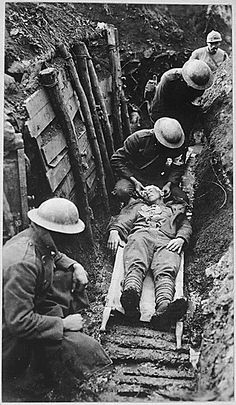
This subject can lead to....
History will help develop many useful skills and is highly regarded amongst colleges, universities and employers. You will be much more critical of what you read and hear on the news and will develop your ability to reason and argue your point of view with supporting information.
Latin
Faculty News & Information
Click here for the latest news from the Languages Faculty
Exam Board and Syllabus
WJEC Eduqas GCSE Latin
Learning Journeys
Year 7 AWPQ Terms 2a & b
Year 7 AWPQ Terms 3a & b
Year 8 Amarantus Term 1a & b
Year 8 Amarantus Term 2a & b
Year 9 Latin - Term 1
Year 9 Latin - Term 2
Year 10 Latin - Term 1a
Year 10 Latin - Term 1b
Year 10 Latin - Term 2a
Year 10 Latin - Term 2b
Year 10 Latin - Term 3a
Year 11 Latin - Term 1a
Year 11 Latin - Term 1b
Year 11 Latin - Term 2a
Year 11 Latin - Term 2b
Year 11 Latin - Term 3a
Home Learning
Students have access to the Suburani textbook’s interactive online resources. These include an online textbook, a vocab tester that they can use to revise for fortnightly vocab tests at KS4, as well as activities to build their grammar and translation skills.
The Cambridge Schools Classics Project and CSCP’s Amarantus course also have extensive websites packed with resources that support our learning in school.
Beyond Suburani, students are recommended to use the app’s Quizlet & Memrise which is great for learning the Latin vocabulary.
Supporting Progress
Latin support is available every Tuesday after-school in F25. Should a student need some targeted 1:1 support, this is held on Friday lunchtimes, also in F25.
When final exams are approaching, additional support sessions are held during the holiday breaks.
Beyond the Curriculum
In Year 10 or 11, students are given the opportunity to visit Rome and Ostia, in Italy.
In KS3, students visit Roman sites and museums in London and beyond. We also hold enrichment events in school, such as the Greek Myth Cafe.
Latin teacher: Ms O Cheetham
Click here to contact our staff
Staff can be contacted via info@wsfg.waltham.sch.uk
Faculty information
Our vision: In the Languages Faculty we are courageous, confident, and excellent communicators. We aim to instil curiosity, open-mindedness and compassion for the world to be global citizens. As linguists we take responsibility for our learning journey, and we aspire to a lifelong love of languages and culture.
In Latin at KS3, students learn about the language’s historical and cultural context. They develop independent research, literacy and critical thinking skills, as well as delving into big questions from life in ancient Rome. At KS4, students will learn how to understand and translate Latin text. In addition they will read and interpret Latin literature, as well as learning about daily life in the Roman world and its links to our modern world. Students are supported in their learning using materials and resources developed by the Suburani programme and the Cambridge Schools Classics Project. Students do not need to have any previous experience of learning Latin and all students are invited to choose it.
Assessment
At KS4 Students are assessed every half term by sitting a written examination focused on the Language, Literature and Roman Civilisation study that they have completed during that half term. Students’ knowledge of Latin vocabulary is also tested weekly.
The final assessment in Year 11 comprises of three written examinations:
Component 1: Latin Language. Written Examination: 1 hour 30 minutes - 50% of qualification.
Section A: A range of short comprehension questions testing understanding of the storyline (55% of the marks for this component). Translation of a passage from Latin into English, with a gradation of difficulty (35% of the marks for this component).
Section B: EITHER translation from English into Latin OR the permitted alternative i.e. recognise, analyse and explain items of syntax and accidence (10% of the marks for this component).
Component 2: Latin Literature and Sources (Themes). Written examination: I hour 15 minutes - 30% of qualification
A prescription of Latin literature, both prose and verse, on a theme, together with prescribed ancient source materials on the same theme. A choice of one of two themes is offered e.g. Love and Marriage or Heroes and Villains. This is an open book assessment and students will answer questions on the resources provided.
Component 3B: Roman Civilisation. Written Examination: 1 hour - 20% of qualification
A prescribed topic of Roman Civilisation. A choice of one of two topics is offered e.g. Roman Entertainment and Leisure or Religion in the Roman World. Students will answer questions relating to one of the prescribed topics.
Advantages of studying Latin
Learning Latin gives students an understanding of the bedrock of many modern languages and cultures. Discovering the ancient world also gives students the chance to stand outside their own lives and think about completely unfamiliar ideas and ways of life.
Students can go on to Sixth Form with a Latin GCSE and study A Level Latin, or Classical Civilisation, or Classics, or Ancient History. Latin GCSE is also a valuable preparation for any modern language A level, as well as the study of subjects such as English Literature, History, Politics and Philosophy.
Latin is taught to be read, not spoken. Students are taught to recognise and translate Latin words and passages. It requires concentration, absorption and attention to detail, which are valuable skills and character traits.
Latin helps students to gain an understanding of the mechanics and structure of language, not least of all English. It can be used to grasp the basics of many modern languages and provides an insight into the language used within the Sciences, medicine and Law.
Literacy
Literacy is one of the most important skills a person can have, as it is central to learning. It is essential that staff, students and parents promote literacy, to enable students to access the curriculum as fully as possible.
All teachers teach literacy within their subjects, with students learning the key skills of reading, writing, speaking and listening.
We have a range of literacy interventions across the year groups. There is a Year 7 Literacy Progress Programme, Year 7, 8, 9 and 10 Bedrock sessions and Year 8 Reader Leader sessions.
Why is literacy important?
Literacy allows students to learn independently and has a positive impact on students’ self-esteem, on motivation and behaviour.
- students need vocabulary, expression and organisational control to cope with the cognitive demands of subjects
- reading helps us to learn from sources beyond our immediate experience
- writing helps us to sustain and order thought
- language helps us to reflect, revise and evaluate the things we do, and the things others have said, written or done
- responding to higher order questions encourages the development of thinking skills and enquiry
Literacy lessons
Year 7 Literacy
Literacy classes focusing on reading for pleasure and oracy, including active listening and presentation skills. This ensures that students have developed and extended the skills they need as they progress through the school’s KS3 curriculum, as well as fostering a lifelong love of reading.
Because the lessons carousel between Literacy and Latin, there are two units of work across the year.
Learning Journeys - Year 7
Year 7 - Reading for Pleasure Literacy autumn term
Year 7 - Spring and Summer term oracy
Year 8 Literacy
Literacy classes are split into three units of work, focusing on reading, writing and oracy. This ensures that students have developed and extended the skills they need as they progress through the school’s KS3 curriculum. The units focus on developing critical thinking skills, active listening and debating skills.
Learning Journeys - Year 8
Year 8 - Critical thinking critical reading - Autumn term
Year 8 - Critical thinking and reading - Spring term oracy
Year 8 - Critical thinking critical reading - Summer term - writing
Bedrock Learning
Bedrock Learning is an online programme for students up to GCSE level, which teaches students the language and grammar they need to succeed at school. It is designed for all abilities and includes audio narration to support their knowledge of new words. Students can use the programme at home as well as school and parents can sign up to regular updates about their child's progress.
You will find a helpful parent guide via this link:
Bedrock Learning - A Guide for Parents
Click the following link to see more about Literacy
Accelerated Reading (AR) Star Reading Assessment
Bedrock Learning
Reader Leader
Literacy gives us the tools we need to succeed.
Parents can contact the school if they need further information -
Telephone: 020 8509 9446 or E-mail: info@wsfg.waltham.sch.uk
Mathematics
Faculty News & Information
Click here for the latest news from the Maths Faculty
Exam Board and Syllabus
All students at Walthamstow School for Girls study Mathematics for 5 years. At the end of Year 11 students sit the Edexcel (9 to 1) GCSE Mathematics at either the Foundation or Higher level. Students are assessed throughout the course by their teachers. There are no controlled assignments and there are three 1½ hour external exams at the end of Year 11. Two of these are calculator papers and one is a non-calculator paper.
Learning Journeys
Year 7
Year 8
Year 9
Year 10 Higher
Year 10 Foundation
Year 11 Higher
Year 11 Foundation
Home Learning
Students receive regular homework which could be a variety of tasks which is set from textbooks, worksheets, MyMaths or our managed learning environment - Fronter.
Revision guides and workbooks for KS4 students can be bought from Student Services to support learning at home. These can be used for independent learning or for extra homework and revision.
Practice books which complement the textbooks used in class are also provided for homework and independent study.
Students also have a login for ‘Kerboodle’, which has on-line versions of the text books and practice books for both Key Stage 3 and 4. These books contain videos of mathematical explanations as well as links to MyMaths for extra private study.
The MLE has a wealth of resources that can support learning for all year groups. There are links to websites which support all chapters of the textbooks used in lessons, revision materials for Key Stage 4 including Mathswatch (a series of short video lessons and associated worksheets), Numeracy Passport (for practice of basic numeracy skills) and Boardworks (a slide show presentation of the whole curriculum). There are also past examination papers with worked solutions and various PiXL materials, including ‘Walking Talking Papers’. There are also links to more fun maths activities.
Key Stage 4 students also have access to the PiXL Maths App, which can be used on phones, tablets and PCs.
Supporting Progress
Maths Support takes place every Tuesday 3.30 – 4.30 and is open to all students. Maths staff are available to give help with homework or classwork and students are encouraged to bring along anything they need help with. We also offer intervention support for GCSE students where necessary, in the form of 1-1 tutoring, 3-1 maths mentoring and after school revision classes.
Beyond the Curriculum
During Black History Month we teach all of
Year 7 how to play the African board game Oware and for LGBT History month we ask students to research the work of Alan Turing and work on various code breaking activities. We have in the past invited Matt Parker in to deliver his lecture on ‘The Hidden Maths in the Simpsons’ to our Key Stage 3 students and regularly invite other speakers in to give fascinating lectures on topics such as Maths and Magic, Murderous Maths, The Enigma Challenge, Learning Maths through Paper Folding and Shapes & Smoke rings. Each year we celebrate Pi Day with several activities, including a competition to learn Pi to the most number of decimal places (as well as eating some pies!).
The Cambridge Roadshow has regularly visited the school and provide sessions on problem and puzzle solving.
Students take part annually in the UK Maths Trust Junior, Intermediate and Team Maths Challenge. Several students every year attend the Saturday Royal Institute Maths Master Classes, Maths Masterclasses at Queen Mary University and many of our Year 11 students attend Sir George Monoux College to study the free-standing Maths Qualification, ‘Additional Maths’.
Head of Faculty: Ms A Blencowe
Click here to contact our staff
Staff can be contacted via info@wsfg.waltham.sch.uk
The Curriculum
The Mathematics Faculty are a team of very experienced and enthusiastic specialist teachers. Our curriculum is accessible to all learners in a way that stretches them to their full potential and gives them the opportunity to enjoy maths. Our GCSE results are always above the National Average.
We endeavour to ensure that students acquire the basic skills and knowledge needed for everyday life, developing a variety of techniques to use maths as a tool. Students learn at a level suitable to their needs allowing them to develop confidence in their mathematical ability.
Students learn maths through a variety of approaches including exposition, investigation, discussion, practical work and consolidation. We give opportunities for learning independently, learning collaboratively within pairs or groups and for discussing maths with each other. Students are encouraged to develop their ability to think logically and coherently through the experience of mathematical investigation and problem solving. We encourage good working habits including working systematically, checking that results are sensible and the correction of errors.
Excellent use is made of ICT resources to support learning and we have a wide range of maths software on our school network for learners to access.
We stretch our more able students through extension and curriculum enrichment, and provide them with many opportunities to broaden and deepen their mathematical understanding. We favour enrichment over acceleration as research suggests that this is of much greater benefit to students.
Key Stage 3
Students are taught in mixed ability classes of approximately 23 for the first term of Year 7. Students who have not met the required standard at the end of Primary school are taught in a separate maths group, with the aim to ‘catch them up’ to the rest of their cohort. At the start of the spring term the Year 7 classes are then set into groups at 4 levels of ability. At the start of year 8, all 8 maths classes are taught at the same time, so we are able to create 8 ability groups. Over each fortnight students have 7 hours of maths lessons in each of year 7, 8 and 9. We currently use a mix of SMP Interact books and the new KS3 Oxford MyMaths text books.
Key Stage 4
With the introduction of the new 9 to 1 GCSE we have decided to begin studying the GCSE course in the spring term of Year 9. Year 10 and 11 students also now have an increased amount of time to study maths, each year group having 9 lessons each fortnight. Key Stage 4 students also use a mixture of SMP interact and the new Oxford MyMaths textbooks.
Assessment
Students are assessed on an ongoing basis throughout the year to make sure that they are making the expected progress. Review Tests are used for assessment. These usually take place after 4 or 5 chapters or topics. If it is felt that a student would make more progress in a different set, then she will change class. Students also complete End of Year Tests at the end of Years 8, 9 and 10. From the end of Year 9 onward, students also sit GCSE style examinations and during Year 11 they sit ‘mock’ papers on four different occasions throughout the year.
This subject can lead to....
A good GCSE grade in maths is vital to the continued of study of many subjects. You need mathematics for everything that you do! Mathematical qualifications can lead to careers ranging from Banking to Computing, Engineering to Actuarial work. It is well known that good qualifications in mathematics can open many doors and result in higher than average salaries.
Music
Faculty News & Information
Click here for the latest news from the Performing Arts Faculty
Exam Board and Syllabus
Year 7 Skills & Knowledge Map
Year 8 Skills & Knowledge Map
Year 9 Skills & Knowledge Map
Year 10 Long Term Plan
Year 11 Long Term Plan
Learning Journeys
Year 7 Keyboard Skills
Year 7 Pop Music
Year 7 Rhythm
Year 7 The Four Seasons
Year 7 Voices
Year 8 Blues
Year 8 Film Music
Year 8 Krishna and the King of the Snakes
Year 8 Reggae
Year 9 4 Chord Compositions
Year 9 Blood Brothers
Year 9 Disco
Year 10 Composition
Year 10 Ensemble Performance
Year 10 Sibelius Arrangement
Year 10 Solo Performance
Year 10 Western Classical Tradition
Year 11 Ensemble Performance
Home Learning
Homework is occasionally set in Key Stage 3 and usually set each week at GCSE level. Students will be directed to a variety of locations to access resources.
Supporting Progress
At Key Stage 3, support is given to students who are not making the expected progress during lesson time. This may be in the form of group or differentiated work.
At GCSE level those students identified as at risk of not making the expected progress are usually given one to one support outside of lesson time.
Beyond the Curriculum
Music has a vibrant extra-curricular offer. This includes a steel band in each year group (entry by audition in Year 7), a choir and an orchestra.
There are three big concerts each year: a Christmas Carol Concert, a Steel Band concert and a Summer concert. In addition to these the Music Department takes part in the annual Music for Youth Festival, regularly travelling to Birmingham for the National Festival in July. In 2015 the Year 11 Steel Band performed at the Music for Youth Schools Prom, at the Albert Hall.
The department also participates in the Waltham Forest Battle of The Bands competition, which they won in 2016, the Waltham Forest Civic Carol Concert and the Waltham Forest Music Service Summer Music Festival.
Head of Faculty: Ms J Hoyle
Click here to contact our staff
Staff can be contacted via info@wsfg.waltham.sch.uk
The Curriculum
In Key Stage 3 Music, the curriculum is designed to meet the requirements of the National Curriculum, engage students and prepare them for further study at GCSE level. Units studied at Key Stage 3 include: Whole Class Steel Band Performance, Question and Answer, Songwriting, Samba, Composing Using Technology and Rock Band.
At GCSE we follow the AQA GCSE Music syllabus. The course breakdown is as follows:
Component 1: Understanding music 40%
- Listening
- Contextual Understanding
Examination with listening exercises and written questions using excerpts of music.
Component 2: Performing music 30%
- Music performance
As an instrumentalist and/or vocalist and/or via technology:
Performance 1: solo performance
Performance 2: ensemble performance
Component 2: Composing music 30%
- Composition
Composition 1: composition to a brief
Composition 2: free composition
Assessment
Assessment at Key Stage 3 takes the form of practical work and written listening exercises.
Assessment at GCSE is outlined in the course breakdown.
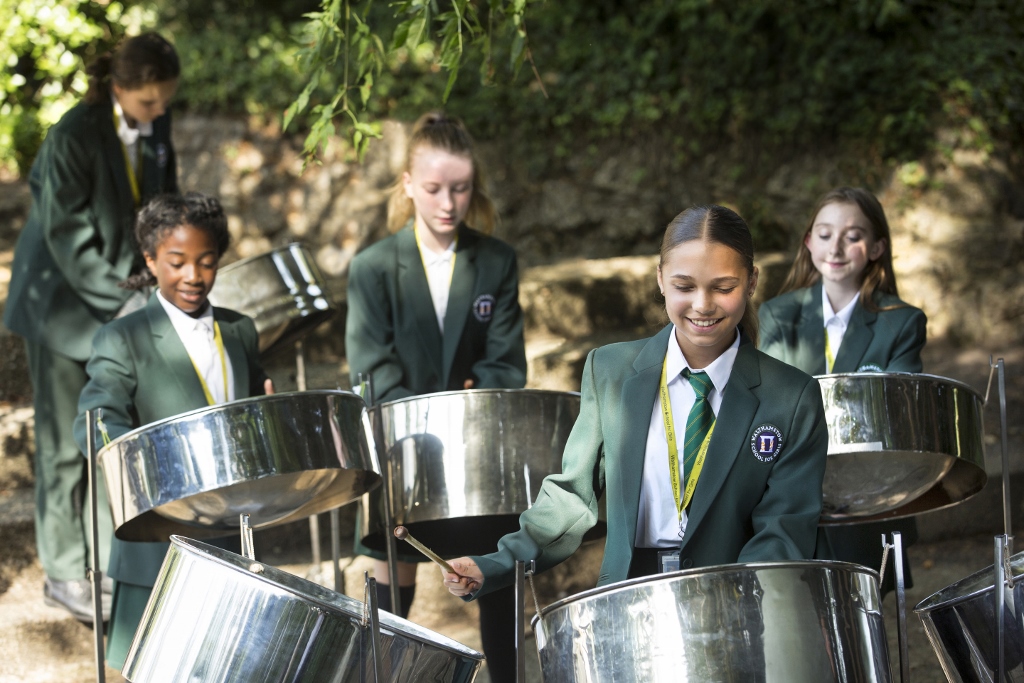
This subject can lead to....
A level Music, A level Music Technology, Level 3 vocational qualifications in Music or Music Technology.
Music is a brilliant subject for developing life- long learning skills including:
- Listening
- Presentation/performance skills
- Resilience
- Creativity
- Problem solving
- Empathy with people/cultures
- Social skills
It is rightly regarded as a subject with a lot of academic rigour and is highly regarded by elite educational institutions such as Oxbridge.
Physical Education
Faculty News & Information
Click here for the latest news from the Performing Arts Faculty
Exam Board and Syllabus
The exam board for GCSE PE is AQA.
Learning Journeys
Year 10 and 11 GCSE Learning Journeys
Unit 1+2 learning journey with assessment
Unit 3 learning journey with assessment
Unit 4 learning journey with assessment
Unit 5 a,b,c learning journey with assessment
Unit 6 learning journey with assessment
Year 7 Learning Journeys
Year 7 Athletics learning journey
Year 7 Cricket learning journey
Year 7 Dance learning journey
Year 7 Gymnastics learning journey
Year 7 Invasion Games learning journey
Year 7 Rounders learning journey
Year 8 Learning Journeys
Year 8 Athletics learning journey
Year 8 Cricket learning journey
Year 8 Dance learning journey
Year 8 Invasion Games learning journey
Year 8 Rounders learning journey
Year 8 Trampolining learning journey
Year 9 Learning Journeys
Year 9 Cricket learning journey
Year 9 Fitness learning journey
Year 9 Invasion Games learning journey
Year 9 Rounders learning journey
Year 9 Trampolining learning journey
Year 7 Skills and Knowledge Maps
Dance Year 7
Gymnastics Year 7
OAA Year 7
Team Sports Year 7
Year 8 Skills and Knowledge Maps
Dance Year 8
OAA Year 8
Team Sports Year 8
Trampolining Year 8
Year 9 Skills and Knowledge Maps
Fitness Year 9
OAA Year 9
Team Sports Year 9
Trampolining Year 9
Home Learning
GCSE students are assigned homework tasks designed to complement their studies. These tasks are directly aligned with the AQA GCSE PE textbook and reinforce the content covered in their theory lessons.
Supporting Progress
Extra curricular activities are open to all years and take place at lunchtimes and after school every day of the week. Some of the sports we offer are: football, basketball, netball, roller- skating, volleyball, trampolining, handball, tag rugby, rounders, athletics, cricket and table tennis.
GCSE interventions take place after school and at lunchtimes.
Beyond the Curriculum
Each half term our extra curricular activities change. Please click here to see our current activities.
Head of Faculty: Mr J Hoyle
Head of PE: Ms L Childs
Click here to contact our staff
Staff can be contacted via info@wsfg.waltham.sch.uk
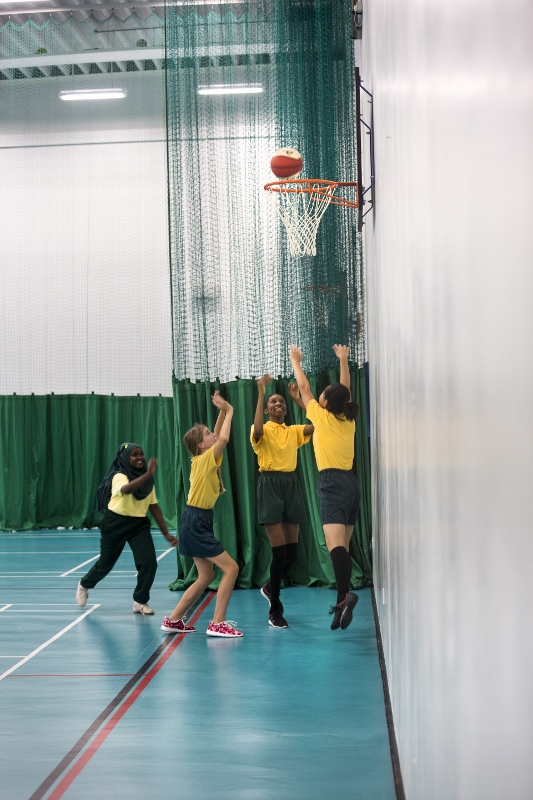
The Curriculum
PE is studied as a core subject throughout Years 7-11. Students are introduced to a range of sporting activities:
Year 7: Orienteering, Gymnastics, Netball, Dance, Tag Rugby, Football, Athletics, Rounders and Cricket.
Year 8: Orienteering, Basketball, Netball, Handball, Trampolining, Dance, Athletics, Rounders and Cricket.
Year 9: Orienteering, Volleyball, Netball, Trampolining, Basketball, Fitness, Handball, Rounders and Cricket.
Year 10 Core PE: students can pick from the following options:
Sports Hall sports: Netball, Basketball, Volleyball, Football, Rounders, cricket, Handball, Trampolining.
Boxing/self-defence: We have an external boxing instructor come in for these sessions.
Sports leaders: In Year 10 Students are given training by members of the PE department on how to teach primary school children sport. They then put this training into action, working with children in local primary schools. Students complete this course over one academic year.
Year 11 Core PE: Year 11 students pick three options from the following activities. Each term they can change activity:
Self-defence/boxing (external qualified instructor)
Feel Good centre gym
Sports hall activities - including basketball, netball, roller skating, trampolining, badminton and table tennis, Handball, Football.
GCSE PE
GCSE PE is made up of three different main areas. They are:
Non- Examined assessment (practical). (30%) Students pick an individual activity, a team activity and a third activity from either the team or individual list.
Analysis and evaluation task. (10%)
Students can submit this as a piece of written coursework or through a presentation.
Examined assessment (theory). (60%)
This is split into two exams, 1 hour and 15 minutes each.
The topics examined are:
- Anatomy and physiology
- Structure and function of the cardio-respiratory system
- Anaerobic and aerobic systems
- Movement analysis
- Physical training
- Sports Psychology
- Socio-cultural influences
- Commercialisation of physical activity in sport
- Ethical issues
- Health and fitness
- Use of data
This subject can lead to....
- BTEC Sport Level 2 and 3
- P.E. A Level
- Studying P.E. at University.
- P.E. teacher/ lecturer.
- Performance Analyst
- Sports coaching
- Nutritionist
- Physiotherapist
- Events Management
- Sports Therapist
- Sports Development Manager
- Broadcasting
- Referee
- Personal trainer
- Outdoor Adventure Instructor
- Project Manager
and many more!
Religious Studies: Philosophy & Ethics
Curriculum Overview
Religious Studies is the study of people, communities, their beliefs and their practices. Religious Studies explores the key principles that underpin religious belief, while also exploring non-religious beliefs and attitudes, and considering these views in relation to a range of social, moral and philosophical questions.
The subject content includes a range of controversial and emotive topics including questions of prejudice and various life and death issues. Through studying this subject, students are provided an opportunity to develop their personal perspective on such matters, while also developing the skills to understand, appreciate and critically engage with alternative perspectives.
As with the other Humanities subjects, Religious Studies will enable pupils to learn how to think creatively and critically, to reason, and to ask questions. The Humanities department at WSFG seeks to provide a high quality education for all students, thereby promoting inclusion and equal opportunity.
Students study Core Religious Education (RE) at KS4 to explore fundamental questions about life, ethics, and spirituality, which helps them develop critical thinking and an understanding of diverse perspectives. This subject encourages students to reflect on their own beliefs and values while fostering respect for others, essential skills for navigating today's multicultural society. Parents should be aware that they have the option to withdraw their child from these sessions if they choose to do so.
Home Learning
Homework relevant to the topic being taught will be set regularly.
Where appropriate, resources will be made available through the relevant student Teams on Microsoft Office.
Assessment
Students will be regularly assessed throughout KS3 and KS4, with targeted feedback provided by teachers on how students can improve their levels of attainment and make greater levels of progress.
Supporting Progress
The progress of students will be closely monitored through assessments and book checks. Where pupils need additional support staff will endeavour to provide this through adaptive teaching practices in lessons.
Where applicable, interventions may be set up to involve individual, or groups of students through lunch or after school study sessions. This approach is most likely to be taken in the build up to GCSE exams to support students in meeting their target grades.
Beyond the Curriculum
Religious Studies is currently exploring opportunities for student trips to widen their perspectives of different cultures and communities. Students can also explore the themes and ideas related to Religious Studies more broadly through the Philosophy Club, which is made available from the Head of Subject.
Faculty News & Information
Click here for the latest news from the Humanities Faculty
Religious Studies Curriculum at KS3
The Religious Studies programme of study at KS3 is as follows:
|
Year group |
Number of hours per fortnight |
Topics covered |
|
7 |
3 |
How do We View The Dharmic Faiths The Indic Faiths Conspiracy Theories |
|
8 |
2 |
Beginnings Ends – Religion, Life Science and the |
|
9 |
3 |
Other World Religions Humanism Religion, Philosophy & Animals |
For a detailed overview of the Learning Journeys for each of these units and how they are assessed, click on the links below:
Learning Journeys KS3
Year 7 How do we view the World
Year 7 The Abrahamic Faiths
Year 8 Hinduism
Year 8 Sikhism
Year 9 Humanism
Year 9 Judaism
Religious Studies Curriculum at KS4
Exam Board and Syllabus
At WSFG we study the EdExcel GCSE Religious Studies, Specification B.
The topics studied are as follows:
Paper 1B: Religion and Philosophy - Christianity: Christian Beliefs; Marriage and the Family; Living the Christian Life; Matters of Life and Death.
Paper 2C: Peace and Conflict - Islam: Muslim Beliefs; Crime and Punishment; Living the Muslim Life; Peace and Conflict
A comprehensive outline of what these topics involve can be found in the Edexcel specification which can be accessed here.
Students study Core Religious Education (RE) at KS4 to explore fundamental questions about life, ethics, and spirituality, which helps them develop critical thinking and an understanding of diverse perspectives. This subject encourages students to reflect on their own beliefs and values while fostering respect for others, essential skills for navigating today's multicultural society. Parents should be aware that they have the option to withdraw their child from these sessions if they choose to do so.
For a detailed overview of the Learning Journeys for each of these units and how they are assessed, click on the links below:
Learning Journeys KS4
Religious Studies Lead: Mr C Caps
Head of Faculty: Mr R Sterlini
Click here to contact our staff
Staff can be contacted via info@wsfg.waltham.sch.uk
This subject can lead to....
Religious Education is all about trying to answer the big questions that we all think about now and again, such as ‘what is the meaning of life?’ or ‘what happens to us after we die?’. Religious studies will also help you to consider and explore moral issues such as euthanasia, prejudice, abortion and poverty.
A GCSE in Religious Studies is a stepping stone to a wide range of future opportunities and will allow you to develop numerous transferable skills which you can apply to other subjects such as History, Psychology, Sociology or Law.
Science
Faculty News & Information
Click here for the latest news from the Science Faculty
Exam Board and Syllabus
AQA
Year 7 Skills & Knowledge Map
Year 8 Skills & Knowledge Map
Year 9 Long Term Plan
Year 10 Long Term Plan
Year 11 Long Term Plan
Year 11 Science Information
Learning Journeys Year 7&8
Year 7A
Year 7B
Year 7C
Year 7D
Year 7E
Year 7F
Year 7G
Year 7H
Year 7I
Year 7J
Year 7K
Year 7L
Year 8A
Year 8B
Year 8C
Year 8D
Year 8E
Year 8F
Year 8G
Year 8H
Year 8J
Learning Journeys Physics GCSE Combined
Learning Journeys Physics GCSE Triple
Learning Journeys Chemistry GCSE
C1
C2
C3
C4
C5
C6a
C6b
C7a
C7b
C8a
C8b
C9
C10
Learning Journeys Biology GCSE
The Curriculum
Key Stage 3 Science is linked to the Exploring Science schemes of work. Students are taught scientific content for Biology, Chemistry and Physics, as well as valuable scientific skills, such as producing and analysing line graphs and looking at experimental variables.
Scientific experiments are used to further explain concepts as well as bring aspects of Science to life.
At Key Stage 4, students will be taught Combined Science or Separate Science GCSEs. Both courses are similar in that they cover all aspects of Biology, Chemistry and Physics. However, Combined Science results in two GCSE`s for Science whereas Separate Science results in a GCSE each for Biology, Chemistry and Physics. These courses involve compulsory experiments that students may be tested on in their final GCSE`s.
Assessment
At Key Stage 3 there are end of term tests for Years 7, 8 and 9 which inform data collections in order to monitor progress. There is an end of Year examination.
At Key Stage 4 there are end of chapter tests following each unit for both Combined and Separate Science which inform data collections. At the end of Year 10 there will be three mocks exams for both Combined and Separate Science in Biology, Chemistry and Physics.
For the final GCSEs Combined Science students will sit six 1h 15 min papers and Separate Science will sit six 1h 45 min papers. Both courses are assessed through terminal examinations with no controlled assessments.
Home Learning
Homework is set in line with the school homework timetable.
Resources for both Key Stage 3 and Key Stage 4 are available on the school MLE, including past paper questions and criteria sheets.
Supporting Progress
- Science support sessions each Thursday lunchtime
- After school revision sessions
- Revision sessions during Easter
- Exam questions analysis
- Targeted homework
- “6 mark question” workshops
Beyond the Curriculum
- Zoofari in-school event
- Women in Physics: STEM talk given at school
- Explorer Dome in-school event
- Science Week drama workshops
- Creative Quarter trip to Imperial College
- GCSE Science in Action trip to University of London
Head of Faculty: Mr C Kerr
Click here to contact our staff
Staff can be contacted via info@wsfg.waltham.sch.uk

This subject can lead to....
Post-16 study of Biology, Chemistry and Physics at A-level. Leading to study of other aspects of specialised Science at University e.g. Forensic Science, Zoology, Oceanography and Biochemistry.
Science is also linked to the study of Medicine, Veterinary Science and Architecture as well as Engineering - all of which lead to excellent career opportunities.
Spanish
Faculty News & Information
Click here for the latest news from the Languages Faculty
Exam Board and Syllabus
Edexcel GCSE Spanish
Learning Journeys
Year 7 Spanish - Term 1a
Year 7 Spanish - Term 1b
Year 7 Spanish - Term 2a
Year 8 Spanish - Term 1a
Year 8 Spanish - Term 1b
Year 8 Spanish - Term 2a
Year 8 Dual First year Spanish - Term 1a
Year 8 Dual First year Spanish - Term 1b
Year 8 Dual First year Spanish - Term 2a
Year 8 Dual Second year Spanish - Term 1a
Year 8 Dual Second year Spanish - Term 1b
Year 8 Dual Second year Spanish - Term 2a
Year 9 Spanish - Term 1a
Year 9 Spanish - Term 1b
Year 9 Spanish - Term 2a
Year 9 Dual Second Year Spanish - Term 1a
Year 9 Dual Second Year Spanish - Term 1b
Year 9 Dual Second Year Spanish - Term 2a
Year 9 Dual Third Year Spanish - Term 1a
Year 9 Dual Third Year Spanish - Term 1b
Year 9 Dual Third Year Spanish - Term 2a
Year 10 Spanish - Term 1a
Year 10 Spanish - Term 1b
Year 10 Spanish - Term 2a
Year 11 Spanish - Term 1a
Year 11 Spanish - Term 1b
Year 11 Spanish - Term 2a
Home Learning
KS3
Half termly vocabulary learning tasks set on Quizlet. Students have individual school logins.
KS4
Half termly vocabulary learning tasks set on Quizlet.
Students have individual school logins. Half termly speaking booklet preparation linked to the thematic context being studied.
Regular GCSE style practice tasks set by the class teacher.
Supporting Progress
One to one and group speaking sessions with our Spanish Language Assistants.
Extra support for Key Stage 3 students is provided one lunch time per week for KS3 Spanish students with our Spanish Language Assistant
Extra support for Key Stage 3 students is provided one lunch time per week for KS4 Spanish students with our Spanish Language Assistant
GCSE intervention during Registration to support students before exams with a Spanish teacher or our Spanish Language Assistant
Beyond the Curriculum
Spanish clubs at lunch time with our Spanish Language Assistant to learn more about the culture in the Spanish speaking world.
Days trips to a Spanish Tapas Restaurant
Spanish cinema screenings
University trips
Theatre trips
Museum trips
Residential trips to Spanish
Head of Faculty: Mr E Watson
Click here to contact our staff
Staff can be contacted via info@wsfg.waltham.sch.uk
Faculty Information
Our vision:
In the Languages Faculty we are courageous, confident, and excellent communicators. We aim to instil curiosity, open-mindedness and compassion for the world to be global citizens. As linguists we take responsibility for our learning journey, and we aspire to a lifelong love of languages and culture.
All Students in Year 7 study either French or Spanish. Students with strong reading skills are also introduced to the ancient world and carry out an independent ancient world research project. In years 8 and 9 students build on this foundation, learning about the ancient world in more depth as well as meeting the basics of the Latin language. Able linguists are given the opportunity to study both French and Spanish from Year 8. All three languages are offered at GCSE, and a very high percentage of our students opt to continue with their language in KS4. Group sizes are usually between 20 and 25.
We are fortunate to have French and Spanish language assistants each year and our students benefit enormously from working with them. Many other extra-curricular activities are organised such as lunch-time language clubs and lunch-time support.
Assessment
At Key Stage 3, students are assessed in each of the four key skills; Listening, Speaking, Reading and Writing in both Formative and Summative Assessments.
At Key Stage 4, students are assessed in each of the four key skills; Listening, Speaking, Reading and Writing in both Formative and Summative Assessments. In both Year 10 and Year 11 students will complete a full mock paper assessing all four skills to prepare them for the final exam at the end of Year 11.
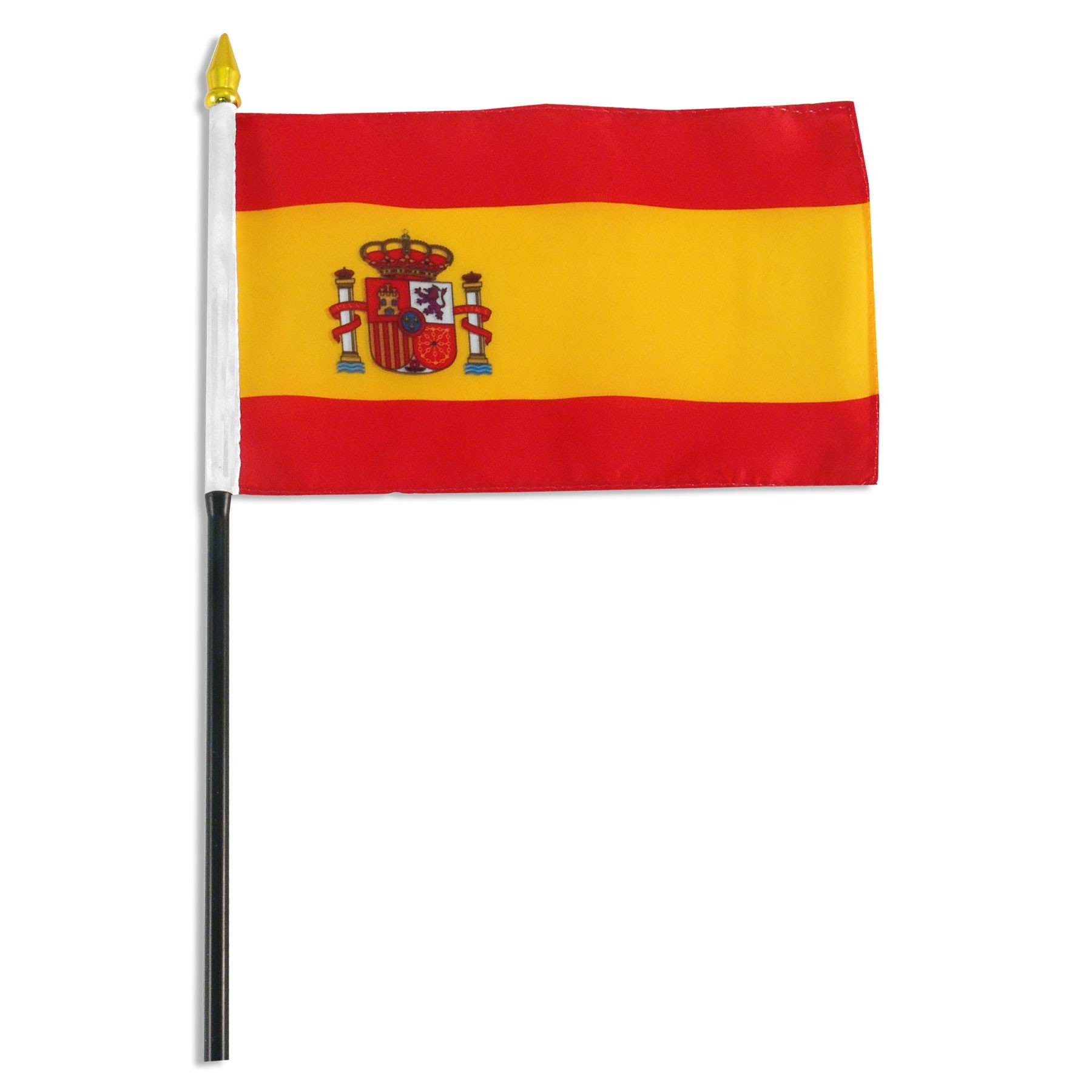
Advantages of studying Spanish
Here are the top 3:
1. Communication: Opens doors to connect with millions of speakers worldwide, enhancing cultural understanding and global communication skills.
2. Cognitive Benefits: Improves problem solving, multitasking and memory skills contributing to overall academic performance.
3. Career Opportunities: Enhances employability in various sectors such as business, tourism, international relations and much more. A languages GCSE is a great choice, regardless of what your plans are for the future. Not only will you have the ability to communicate in a different language, but employers, colleges and universities will look favourably on your application.


